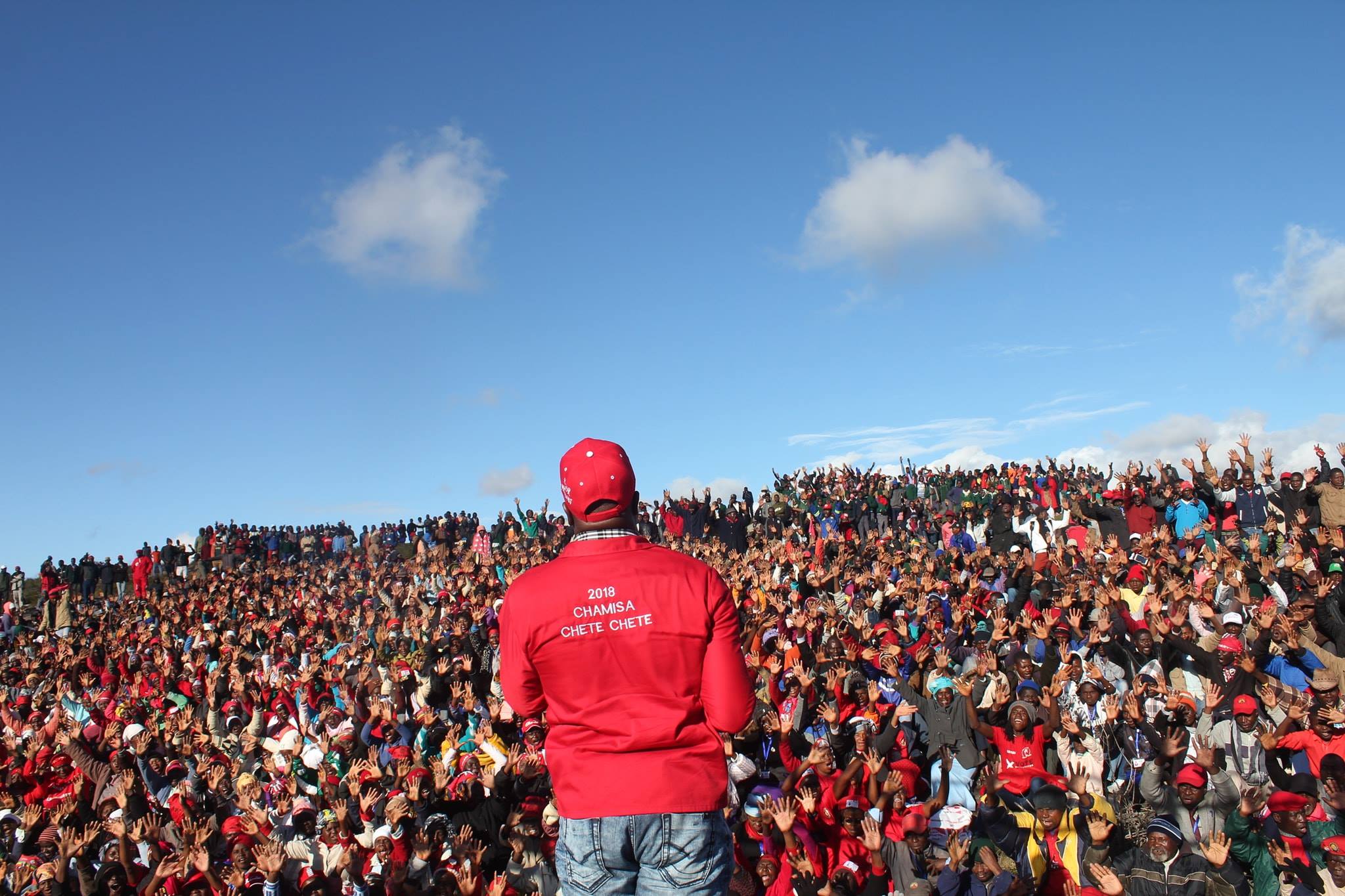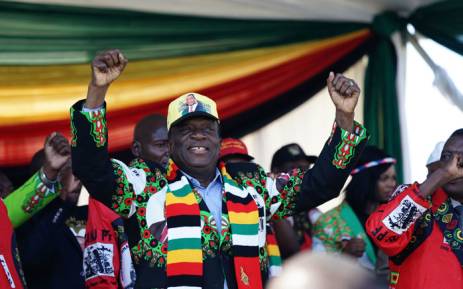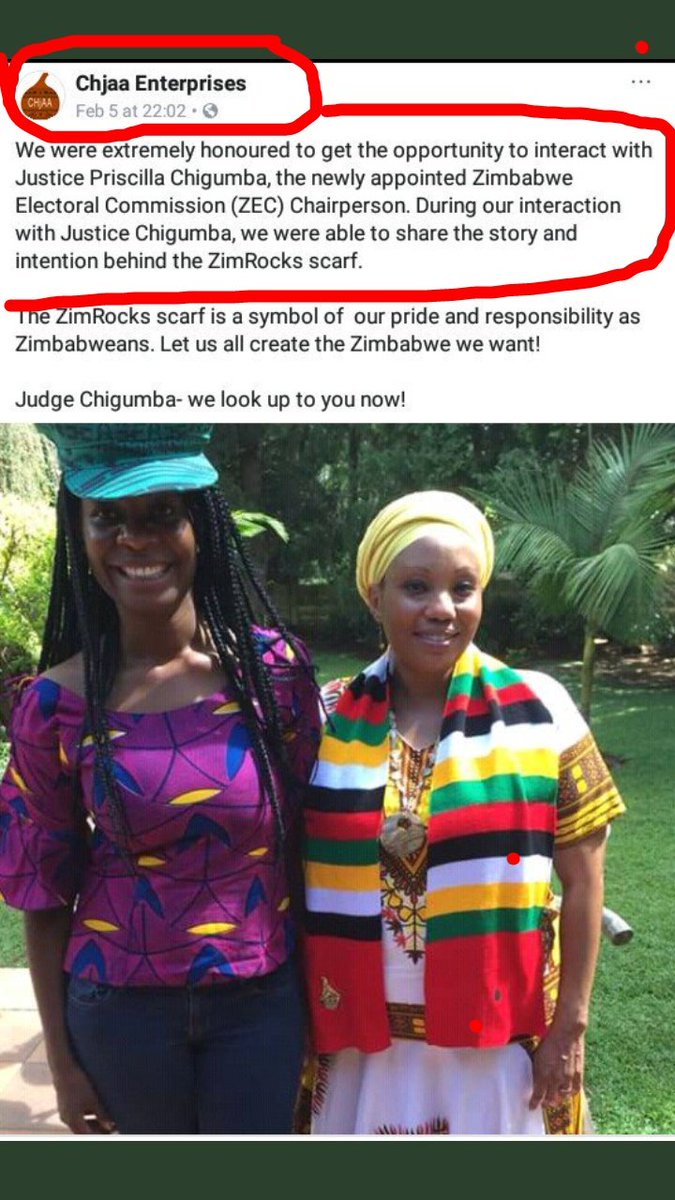
Having toyed with the idea of boycotting the elections for a while, opposition leader Nelson Chamisa announced yesterday that he would in fact participate in the momentous 30 July vote. “Winners don’t boycott, victory is inevitable,” he said of Zimbabwe’s first elections without Robert Mugabe in charge.
The heart wants to believe he is correct. Huge have turned out for the Movement for Democratic Change’s (MDC) rallies. A recent that puts Chamisa within touching distance of President Emmerson Mnangagwa. Opposition supporters insist that a huge wave of turnout could be enough to overcome the uneven playing field created by widespread voter intimidation, media bias and electoral irregularities.
But the head cannot but help see this as the wrong move. Boycotting an election is never a decision taken happily or lightly. It is a last resort. Yet in this instance, and despite the fact it would now require a sharp U-turn, it is still the least bad of two unenviable options.
It is clear that the ruling ZANU-PF will do whatever it takes to maintain its rule. It has extensive experience of manipulating elections and has been busy repeating these strategies yet again. Moreover, it has barely been eight months since Zimbabwe’s political and military leaders took a huge gamble by removing President Mugabe. They did this in order to keep hold of power and it is hard to believe they would even countenance losing it now to a 40-year-old civilian at the ballot box. They have done very little to assuage these suspicions.
These elections were never intended to reflect public opinion, but only to confer a veneer of legitimacy onto the pre-ordained victor. ZANU-PF has played its familiar part in this process, wheeling out a range of strategies to ensure victory without resorting to overt violence. International election observers keen to see Zimbabwe move on from Mugabe are likely to play theirs, raising a few concerns but offering their broad approval. But the opposition doesn’t have to play its part. It can subvert this grand plan by withdrawing from a process that lacks credibility, using its remaining campaign time to shout loudly about its refusal to participate in a democratic charade.
A flawed election

ZANU-PF has been desperate to of a nation holding credible elections for the first time, but little has actually changed from previous votes marred by widespread irregularities. Over a month ago, African Arguments published a listing “six issues that must be fixed for elections to be free and fair”. Not a single one has been. Instead, there have been countless and various attempts to sway the vote through dubious means.
The administration of the voters roll, for example, has been opaque and shambolic with some analyses estimating that the register includes hundreds of thousands of . The design of the has failed follow the electoral commission’s own regulations in a way that ensured the incumbent’s name appears more prominently that it should do. The Zimbabwe Electoral Commission (ZEC) seems to lack any degree of independence or impartiality; its chair was even photographed w]earing Mnangagwa’s signature scarf just days after her appointment.

In terms of the media, state-run outlets have barely offered any space to the main opposition, forsaking their responsibility to offer balanced coverage. When they have, their reporting has been .
There are also reports of intimidation across the country. One opposition leader has claimed that 5,000 military officers in the rural areas. Meanwhile, ZANU-PF officials have spread rumours that they will be able to track individual votes to see who voted for the opposition in an attempt to scare voters. Furthermore, the ruling party has misused significant state resources in its campaign, using police resources during their primaries and government helicopters to travel around the country.
Some believe that despite all of these disadvantages, and the list could go on, the MDC still has a chance on 30 July. However, even if the opposition were to win somehow, there are indications that Zimbabwe’s powerbrokers would not accept to result. Mnangagwa has promised that he will still be leading the country in , while the deputy finance minister recently warned that the military would . Zimbabwe’s army leaders have previously vowed not to accept a leader not from ZANU-PF and, in 2008, were instrumental in preventing a transition of power to the MDC.
Why boycott?
This May, presidential spokesperson George Charamba openly admitted that the ruling party sees these elections as primarily about international perceptions. “This election is about restoring international re-engagement and legitimacy,” he . “We are playing politics at a higher level.”
ZANU-PF has ensured that Chamisa cannot win at the ballot box, but he can deny President Mnangagwa that unearned international legitimacy by refusing to participate in this distorted performance of democracy. Given the opposition’s widespread support, a boycott would significantly reduce turnout and undercut the efforts of Mugabe’s long-time apprentice to present himself as a new kind of leader with a popular mandate. If the MDC were to call for a boycott, it would also not need to demand a blanket stay-away, but could aim it only at the presidential vote.
It may be true that boycotts rarely achieve their goals – a deemed just 4% of boycotts to have resulted in positive outcomes for the opposition – but the MDC has little to lose at this point. Participating in flawed elections has not brought change in the past, while the only time that the opposition has abstained so far – in the second round of the 2008 presidential elections – it led a weakened ZANU-PF to negotiate a power-sharing arrangement.
Neither option available to the opposition is a good one, but the latter is favourable. It is not too late for Chamisa to reconsider. In fact, changing his mind in the face of the sheer weight of growing evidence of irregularities – and continuing to tour the country to explain to huge crowds why – could give it even greater impact.
As Zimbabwe approaches general elections on 30 July, a worrying trend has emerged whereby those raising questions about the process are being cast as the problem. Rather than have their legitimate questions about the credibility of the vote addressed, their concerns are being trivialised and ridiculed. Those who are uneasy of news of irregularities and a lack of transparency are being told that they’re complaining too much.
But are they right to be worried? Let’s consider a few of these concerns and try to understand why the opposition feels aggrieved.
1) The voters roll
Questions over Zimbabwe’s elections started when the Zimbabwe Electoral Commission (ZEC) omitted the provision of the voters roll from its initial road-map. This gap raised eyebrows among the opposition and with good reason. In the 2013 elections, the electoral authority failed to release an electronic copy of the voters roll and there were worries it would fall short again.
ZEC only relented after a loud outcry. But even then, the process of making public the voters’ roll was not without problems. There was uproar after a foreign embassy announced it had received the roll before the contesting parties. It then took days for the main opposition MDC Alliance to finally get access to the voters roll, well after the ruling ZANU-PF. Furthermore, when the information did arrive, it was incomplete. Regulations introduced after the new Biometric Voter Registration process requires the voters roll to include photographs, but ZEC refused to comply with its own rules, selectively citing privacy provisions as justification.
Next, when the Commission was informed by a team of analysts that there were serious anomalies in the voters’ roll, it dismissed their concerns. One commissioner shrugged off their findings, claiming ZEC had a different voters roll which was “near perfect”. But if this is true, does that mean the electoral authority deliberately misled parties when it gave them the first voters’ roll?
After the scandal of 2013, Zimbabwe’s electoral commission has had an opportunity to demonstrate a different approach, but its handling of the voters’ roll left a lot to be desired. ZEC wants to be seen a strict follower of the law, but it has ignored or circumvented rules when it suits it and – in the opposition’s eyes – the ruling pary. It is perhaps not a coincidence that the MDC is ZEC’s biggest critic when the electoral body’s main defender has been ZANU-PF.
2) The ballot papers
Another controversy regards the design and printing of ballot papers, both of which have been kept opaque. Some people think that these things are not important. The position of a candidate on a ballot paper will not change who people vote for, they argue, and they may be correct. But that’s not the point of the dispute.
ZEC has not complied with the law. Moreover, it has done so in a way that, the opposition alleges, benefits President Emmerson Mnangagwa. Many believe there was a deliberate effort to ensure the incumbent’s name has a more prominent place on the ballot paper than it would in the single-column alphabetical system required by law. If these rules were followed, Mnangagwa would appear in the middle of a clogged list of 23 candidates. As it is, the ballot has two columns, with the president at the very top of the second.ZEC also made it incredibly difficult for observers to witness the printing of the papers. The opposition’s complaints on this were echoed by EU and local observers. If ZEC had nothing to hide, there would have nothing to lose by allowing parties to observe the process. Instead, its opaqueness only exacerbated existing fears.

No comments:
Post a Comment